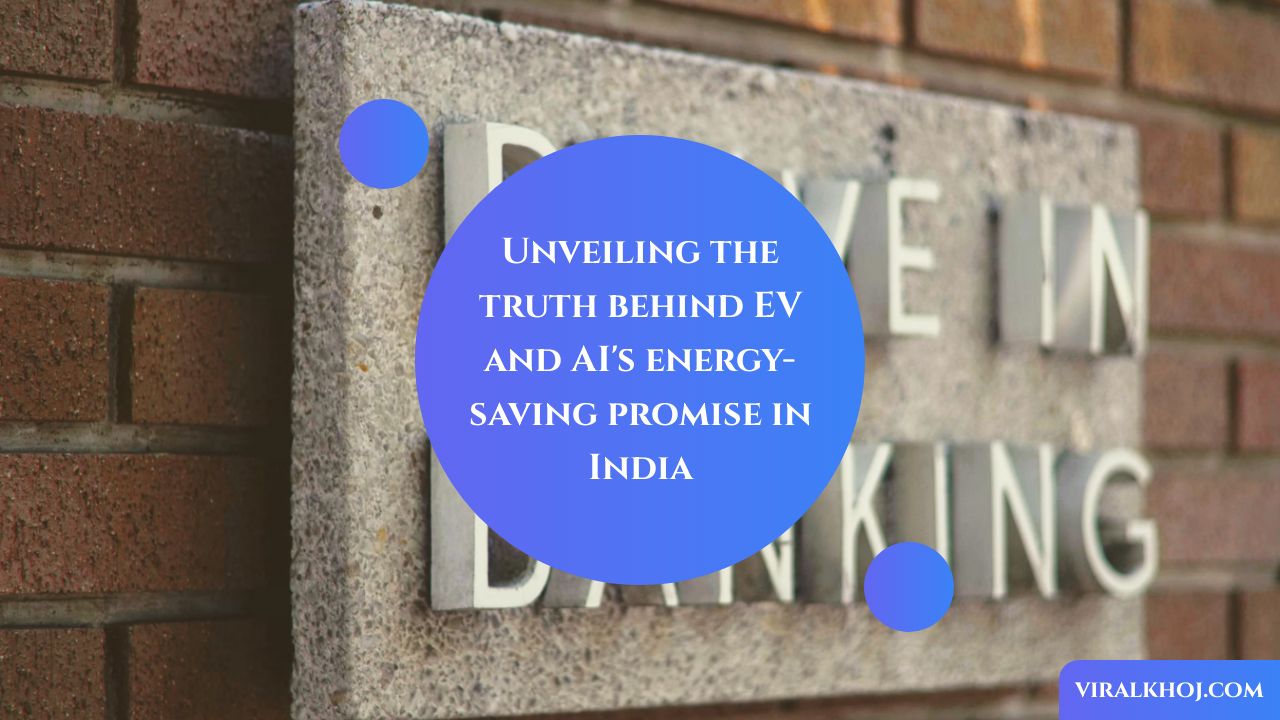Why EV and AI’s energy-saving pitch in India is a clickbait

Why EV and AI’s energy-saving pitch in India is a clickbait
In recent years, the concepts of electric vehicles (EV) and artificial intelligence (AI) have gained significant attention in India's energy sector. Both technologies promise to revolutionize the way we consume and conserve energy. EVs offer a cleaner and more sustainable mode of transportation, while AI has the potential to optimize energy usage and reduce wastage. However, amidst all the excitement and hype surrounding these technologies, it is crucial to differentiate between genuine solutions and mere clickbait.
One of the primary reasons why the energy-saving pitch of EVs and AI in India can be considered clickbait is the lack of infrastructure and implementation. While there has been a gradual increase in the adoption of EVs, the charging infrastructure remains inadequate. Without a robust charging network, EVs cannot become a viable alternative to traditional vehicles. Similarly, although AI has the potential to optimize energy consumption in various sectors, its widespread implementation is still in its nascent stages.
Moreover, the cost factor cannot be ignored. EVs and AI technologies are often associated with high upfront costs, making them inaccessible to a significant portion of the population. The affordability of these technologies needs to be addressed before they can become mainstream. Additionally, the existing energy infrastructure in India is primarily coal-based, which raises concerns about the actual environmental benefits of EVs. Until the energy grid transitions towards renewable sources, the overall impact of EVs on carbon emissions remains debatable.
Another aspect that contributes to the clickbait nature of the energy-saving pitch is the oversimplification of the benefits. While EVs and AI do offer energy-saving potential, their efficacy varies depending on several factors such as usage patterns, driving conditions, and the overall energy mix. Claims of massive energy savings without considering these variables can be misleading and create unrealistic expectations.
It is essential to approach the energy-saving pitch of EVs and AI in India with caution. While these technologies undoubtedly have the potential to revolutionize the energy sector, their widespread adoption and impact are still a work in progress. Government initiatives, private sector involvement, and a comprehensive energy policy are necessary to overcome the existing challenges and realize the true potential of EVs and AI in energy conservation.


The Ethical Implications of AI in Warfare: A Call for Responsibility
27 Aug 2024
Reddit Blocks Bing Search Engine Access: Impact on Other Search Engines
28 Jul 2024
Google's Privacy Shift: Implications for Chrome Users and Regulators
28 Jul 2024
Unlocking Infinite Context Lengths for Large Language Models: The EM-LLM Breakthrough
17 Jul 2024
Google Dark Web Monitoring: What You Need to Know
11 Jul 2024